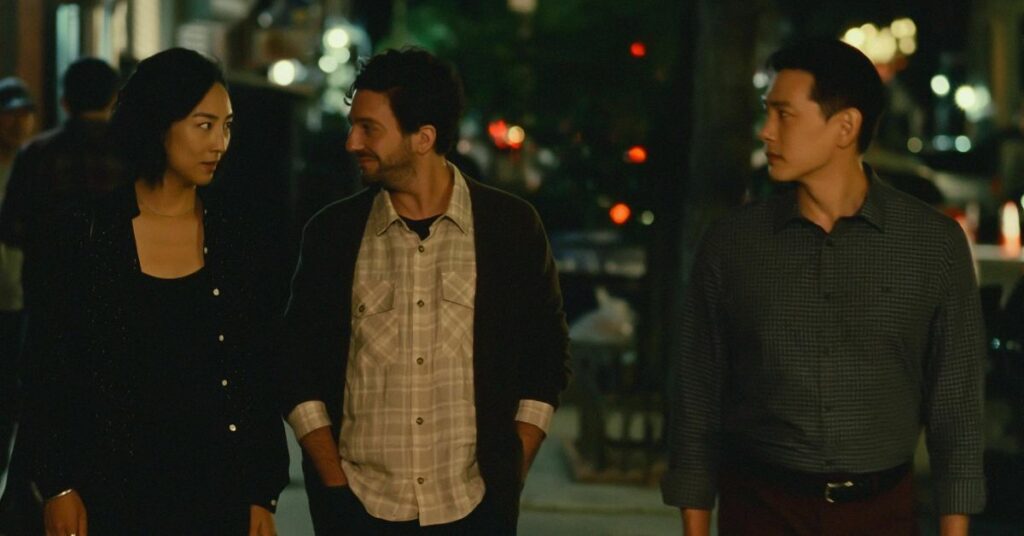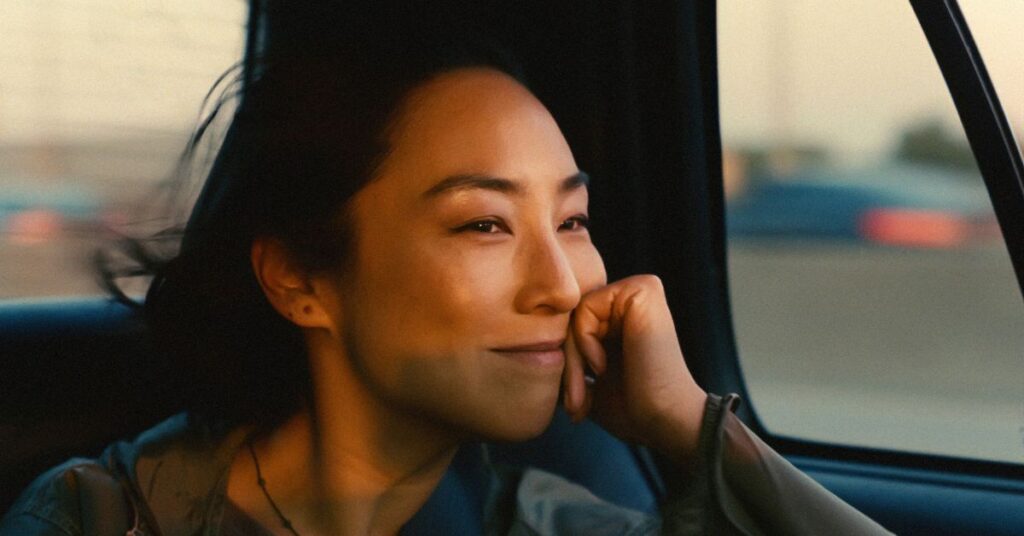Past Lives is more mythic than realistic, but its complex yet intimate circumnavigation of love, loss, ambition, and destiny makes this three-decade-spanning tale as personal and timeless as the rich tapestry of human experience.
Helmed by an intricate and detailed direction by South Korean-Canadian filmmaker and playwright Celine Song, coupled with Shabier Kirchner’s blissful cinematography, Past Lives is equally and surprisingly a technical feat as it is an emotional journey, encompassing first love, immigration, alienation, interracial marriage, and self-actualization. Seamlessly blending the artistry of honest storytelling with visual splendor, every shot speaks volumes, and every frame adds nuances to the characters – more so to the things that are left unsaid.

Reminiscent of Richard Linklater’s ‘Before’ series, the film’s minimalist introspection allows the narrative to give so much by doing very little – and the stillness and subtlety immediately pull you into the depths of each character’s psyche. The tension behind their silence is vibrating, you can almost hear their inner monologues.
The film epitomizes cinema as a language. The camera work played a pivotal role, enveloping the characters’ disposition through meticulously crafted mise en scenes, treating audiences as voyeurs at a distance, and allowing us to peer into their lives in a unique vantage point where compassion and empathy are rich. You’ll feel for each one; you’ll see a piece of yourself from each one. I found myself disagreeing with most of their choices and actions, but I never felt entitled to judge them. Instead, I saw three flawed human beings navigating the trappings of human emotions, doing their best to find joy, peace, and fulfillment.

But no one had prepared me for the achingly heartfelt performances from Greta Lee, Tee Yoo, and John Magaro – who all gave such colorful and warm life to their characters, as if they had walked straight out of the pages of a deeply profound novella.
Past Lives lingers long and hard. It’s one of those rare moments where the story’s humanity, free from overflowing earnestness, grandeur, or spectacle, stood out as the pure and profound embodiment of cinema.







